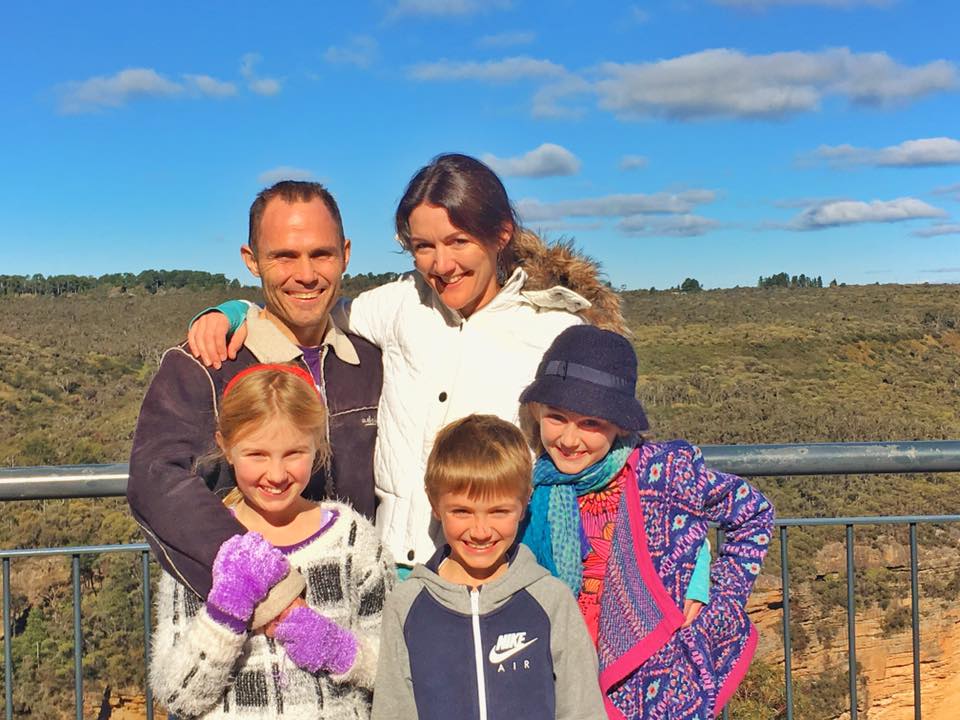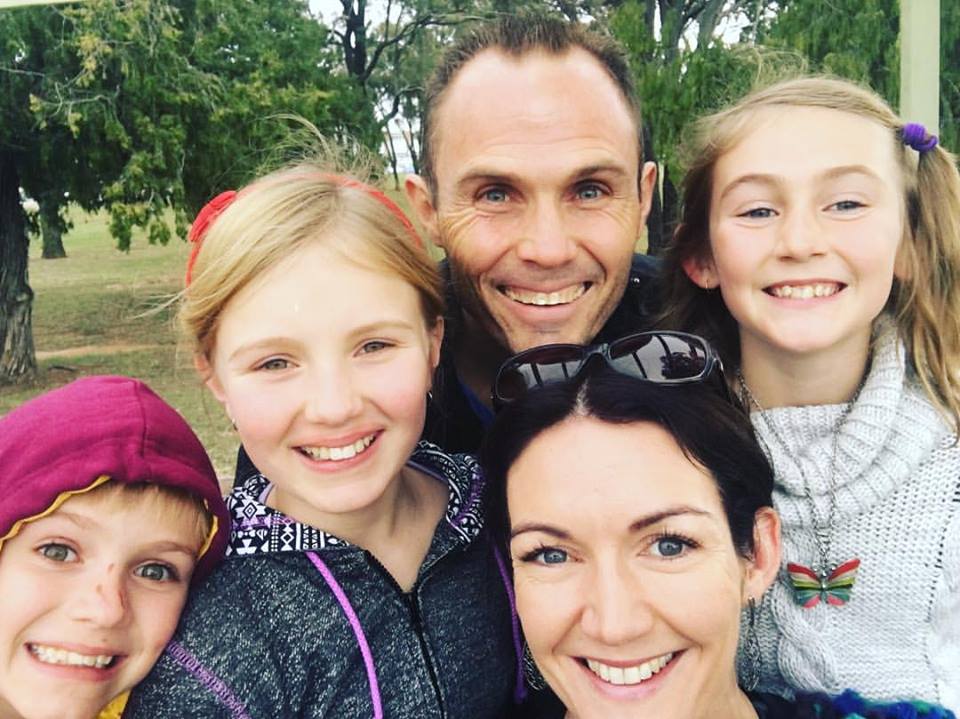Stepping Into Parenting: How I Navigate The Blended Family Dynamics
The label ‘step-mum’ has never sat well with me. It instantly makes me feel uncomfortable and I’m not 100% sure why that is.
Is it because I fear what others think of me when referring to myself as a step-parent?
Is it because I don’t feel worthy to be entrusted with such a role?
Is it the worry that I am treading on the toes of the biological parent?
Perhaps, it’s a combination of all the above and more!
The one thing I do know is that assisting in raising someone else’s children is incredibly challenging. Rewarding too, but challenging nonetheless.
- - - - -
I am not going to sugar coat each of the challenges with a reward simply because I don’t want to sound ungrateful. The truth is, my experience of step-parenting (yes, I am resorting to the label that makes me cringe) at times feels a little overwhelming. That’s not to say I don’t love my partner’s children or that they’ve done anything wrong. They are loving, respectful and happy children who accept me in their life and love my own daughter. They add enormous value to our life and teach us to be better people. I wouldn’t want life without them in it.
Having said that, there are challenges that come with step-parenting that we are often too scared to discuss. For me, the main ones are:
1) I don’t have that innate biological bond and understanding of how my partner’s children tick.
My daughter and I have that relationship where you can sense how the other is feeling without any words, even if no-one else can. I know when she needs time to be alone. I know when she needs a good meal or sleep. I know when she is missing someone or feeling hurt. Most importantly, I usually know how to best manage these emotions and situations. I think many parents would relate to this. You just ‘get’ one another.
With my partner’s children, it’s different. I don’t understand all those little idiosyncrasies that he will be far more tolerant of. Mood changes and emotions are harder to manage and patience is lower. My partner is the same with my daughter, and unfortunately it can cause occasional friction. If there is miscommunication, we will automatically want to defend our own children because we get where they are coming from and we typically will know what they need.
Therefore, it can be harder to work as a team and create a united front with your partner when dealing with conflict between the children, or if there’s any with yourself and the step-children.
2) I struggle to be completely myself around my step-children because our family life may be relayed and interpreted with their other family.
This is where I need to care less about how I am perceived to people that don’t know me very well. This is difficult when those people are raising your partner’s children more than he is and may have strong and valid opinions about what my role should and shouldn’t be in the children’s lives.
I think for the most part we are fortunate in our situation, whereby each family doesn’t often get too involved in what goes on when the children aren’t with them – there is trust.
However, on the occasions when we may have had a more difficult time due to one or two family members clashing and emotions are high, this will understandably be discussed in the other home and causes anxiety. I instantly feel vulnerable, defensive, and overwhelmed. I start second guessing myself and it can cause me to shut down with my step-children because I am scared to get too close; I put up my walls, and this in turn will negatively impact on my relationship with not just them, but with my partner also.
3) We don’t have them as often, so weekends and holidays often come with an expectation to do everything together and always be 'doing something.'
My daughter and I are, by nature, independent people who need a bit of time away from people at some point in the day to put our best foot forward. It doesn’t have to be for long but something as simple as folding the washing by myself can help centre me, and for my daughter it may be reading a book.
We also need time that’s just for us. We spent so many years where it was just the two of us that it’s formed this unique bond and desire to just want to hang out together sometimes. If she doesn’t get that from me, she gets very overwhelmed with the larger family dynamic and quite emotionally needy and clingy.
On the flip side, my step-children are used to always being together as a family (whichever family that may be) and can feel hurt or sad if my daughter and I do something independent of them. On top of that, they are not with us as often, so it’s important that time together is maximised. This is completely understandable and necessary, but can leave you feeling ragged at the end of the weekend; a feeling only amplified by the first two points - they are not your biological children and it’s much harder to relax and be yourself.
4) You never quite know what the boundaries and expectations are in your role.
This may be the most challenging of them all.
You are not their biological parent, but you are also not simply there to be their friend.
You need to build a bond that has the qualities of a parent-child relationship encompassing trust, respect, kindness, and love. Yet you also need to be mindful of not taking on the role of ‘mother’ and respect her rightful place in their life even when she’s not there.
You also need to learn to let go! You will see and hear your step-children do and say things that go against your grain and perhaps even your values, but when you are not their biological parent, you need to accept that you will have far less say and influence.
This is where communicating with your partner and being a team that operates on the same page is crucial to your relationship success with both the children and your partner!
- - - - -
I don’t have the answers on how to get it right as a step-parent, but I don’t have the answers for that as a biological parent either!! What I do know is that every situation is unique and some of my challenges may be completely different to that of other step-parents.
There are a few things I have learnt, however, that make it easier to manage the varying dynamics, emotions and uncertainties that come with step-parenting that I believe may be relevant to any situation.
Work with your partner.
This is no.1!!
Raising kids is challenging on relationships (and yes, also very rewarding!) even when they are your own, so adding in the external factors of other family dynamics, unfamiliar personality traits, changed financial responsibilities, differing values, and loss of control (to name a few), can really add enormous strain to your lives at times. You need to communicate what your values are and see if you can get on the same page with the fundamentals so that you can support each other and have unity in household expectations. If you work as a team the children are less likely to try and fight back or manipulate situations. They are also more likely to feel settled and secure.
When you are feeling overwhelmed or ready to snap try to remove yourself from the scenario you are in until you can get time to talk it through privately with your partner – not in front of the children.
Be kind to yourself.
Don’t beat yourself up for not always getting it right with your step-children (or your own for that matter!). Relieve the pressure valve and acknowledge and accept that you are doing the best you can. If you are providing love, care, and acting with integrity then you are doing well! You may crack at the seams sometimes and you may lash out - all we can do is continue to learn and adapt.
As much as we may want to shut down emotionally and put our walls up, remember that there is far more reward when you allow yourself to be vulnerable despite the fear and potential pain along the way – it’s better than resentment and being closed. It’s also far more rewarding and loving - and children deserve your love.
Don’t try too hard.
Work with your partner to ensure that they are the bigger voice and disciplinarian in your step-children’s lives. If you communicate well with your partner you can set this up to be successful and you can learn to trust that they will respect your needs and values in how they manage situations. This helps not only in preventing you from treading on the toes of the biological parents, but also in your own relationship with your partner, whereby you can build on trust and respect.
Don’t project your emotions on the children.
Whatever you may be experiencing as a step-parent/parent, remember that the children are not to blame and they just need you to show them love, acceptance and kindness. It is so damaging to project your emotions onto them so be mindful and present to your situation and the influence you have on their development. Self-awareness and self-restraint need to be exercised constantly!
I obviously don’t always get it right and it’s a very personal topic to discuss, but it’s also incredibly relevant!
There are increasingly more blended families emerging so I wanted to open the door to discussing it in my blog and give other parents the opportunity to share their experiences below.




